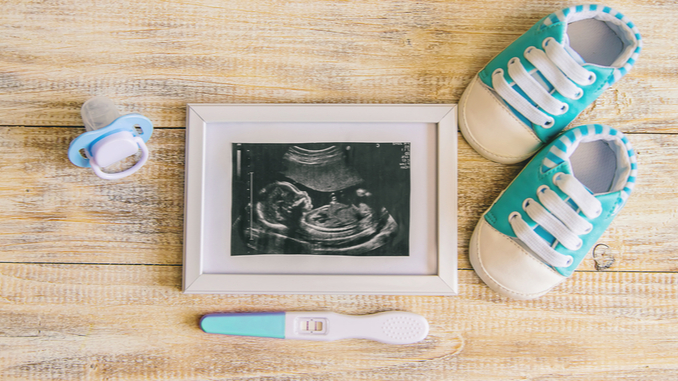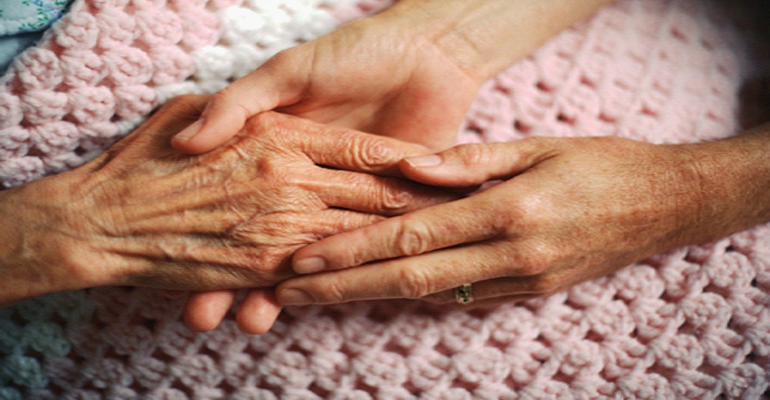
by Corinne Murdock | Feb 15, 2022 | News
By Corinne Murdock |
The Arizona Senate approved a bill to limit abortions after 15 weeks, SB1164, with punishment reserved for physicians providing the abortions and not the mother of the unborn child. Abortions past 15 weeks could be performed in the event that a mother’s life is determined to be at stake, but the physician must file a report with the Department of Health Services (DHS).
The bill sponsor, State Senator Nancy Barto (R-Phoenix), has been invested in phasing out abortion entirely. Barto was the sole state legislator outside the Supreme Court hearing for Dobbs v. Jackson Women’s Health Organization, which considers the legality of Roe v. Wade precedent, the ruling that legalized abortion nationwide.
Barto called her bill a “common-sense limit,” but lamented that the bill didn’t go far enough.
Barto did concede that the bill was still an opportunity to protect more women from late-term abortions, saying it was “honoring life and protecting women.” Barto criticized Planned Parenthood for not using its millions to help women with unplanned pregnancies,
“15 weeks? That puts Arizona in league with China and North Korea,” said Barto.
Senate Democrats defended the decision to end an unborn child’s life as the personal decisions of parents. State Senator Christine Marsh (D-Phoenix) said that the state of Arizona couldn’t put barriers on abortion until there’s a way to stop rape and incest for good.
State Senator Sally Ann Gonzales (D-Tucson) said that unborn children could be “a burden” to families.
“We ought not be supporting bills like this that really place not only a burden onto families but, as I always like to say, it’s really placing our own individual values and beliefs onto all the women of this state,” said Gonzalez.
State Senator Rosanna Gabaldon (D-Sahuarita) said she wanted to be proud to be part of a state that allows families to make the decisions of what their families look like. Gabaldon expressed a wish that the question of abortion would no longer be subject to moral debate but rather an accepted good.
“I want to live in a world where we respect other people’s decisions,” said Gabaldon. “I want one day for Arizona to look back and say, ‘Why did we have a problem with this?’”
State Senator Raquel Teran (D-Phoenix) compared Arizona women’s plight with unplanned pregnancies to the women of El Salvador under their strict abortion ban in place since 1998. Teran insinuated that the third-world justice system practices of El Salvador would befall Arizonans. She called the bill an “injustice.”
State Senator Stephanie Stahl-Hamilton (D-Tucson) claimed to be a Christian and that the Bible supported abortion.
SB1164 now heads to the House for consideration.
Corinne Murdock is a reporter for AZ Free News. Follow her latest on Twitter, or email tips to corinne@azfreenews.com.

by Corinne Murdock | Feb 15, 2022 | Education, News
By Corinne Murdock |
The House will soon vote on a bill to allow college faculty and students to carry and possess firearms on campus property. The bill, HB2447, would only require that faculty and students submit notification to their administration that they are armed and possess a concealed carry permit. In the state of Arizona, individuals must be 21 or older to receive a valid concealed carry permit, or 19 and older for active military and veterans. The bill would extend to all higher education campuses — community colleges as well as four-year colleges and universities — and require them to adopt guidelines for firearm usage during an active shooter situation.
The House Rules Committee passed the bill on Monday. The House Judiciary Committee passed the bill last month along party lines, 6-4.
While House Judiciary Committee Republicans viewed the bill as a further defense of Second Amendment rights and increased, committee Democrats conveyed concern that allowing more guns on campuses would decrease safety. The bill sponsor, State Representative Quang Nguyen (R-Prescott Valley), cited how Texas passed a bill ensuring the same rights in 2016, SB11. Nguyen serves as the Arizona Rifle and Pistol Association president currently and is a certified CCW instructor, firearms safety instructor, rifle coach, and previously a state director for a junior rifle team overseeing competitors aged 12 to 20.
Arizona State University (ASU) Police Chief Michael Thompson insisted that college students lack the maturity to carry a firearm. Thompson said that students should leave it up to the professionals on campus: law enforcement and security.
“The notion that a CCW training is going to prevent some kind of mass shooting on campus is a fantasy,” said Thompson. “They are still in a very developmental stage in their lives, and they tend to not think through consequences and have issues with their actions at many occasions. It’s increasing and adding a risk to a campus that’s not necessary.”
Chairman Walt Blackman (R-Snowflake) explained that while in the military he oversaw platoons of hundreds of young men in the very age bracket that Thompson criticized: 18 to 23 years old. Blackman said that, based on his experience, he disagreed with Thompson’s assessment that college students
Thompson rebutted that the 18 to 23 years old in the military are soldiers “with training and supervision,” whereas those in college would be “intoxicated” and “in their dorm room, showing off rifles and handling pistols.”
Nguyen’s subsequent line of questioning prompted a heated exchange between the legislator and Thompson.
Nguyen responded that Thompson’s characterization of ASU’s climate made the case for necessitating concealed carry. He added that young adults may vote and even be drafted to serve in the military at 18, and cited his own daughter as an example, who finished six weeks of boot camp before turning 18 and received a firearm as part of her assignment.
“You kind of scare me when you start talking about kids drinking and doing drugs and being irresponsible. You just made a case for me to not send my kids to ASU,” said Nguyen. “Or you’re making the case for me that if I send my 21-year-old daughter to ASU, she should be armed to protect herself from all the drugs and the drug users on campus.”
Thompson said that his issue wasn’t with concealed carry generally, but with the ability for any states’ concealed carry permit to be permissible for use on college campuses. Nguyen questioned Thompson why concealed carry permits existed at all if those permits were questionable, or why Arizona allows reciprocity.
Minority Whip Domingo DeGrazia (D-Tucson) expressed concern that concealed carry permits may be obtained through an online course and a 15-minute interview with an instructor.
Corinne Murdock is a reporter for AZ Free News. Follow her latest on Twitter, or email tips to corinne@azfreenews.com.

by Corinne Murdock | Feb 14, 2022 | News
By Corinne Murdock |
Following the ambush of five Phoenix Police Department (PPD) officers during a hostage call, Councilwoman Ann O’Brien issued a memo requesting that her fellow councilmembers and Mayor Kate Gallego move to purchase drones for PPD. O’Brien explained that drones were needed during the ambush to mitigate the crisis, but that PPD didn’t have any.
As of press time, O’Brien’s request for drones wasn’t included among the agenda items for Wednesday’s council meeting.
News of the attack on the officers made headlines internationally. As of Sunday, two of the five officers shot directly remained hospitalized. Another four officers were wounded from the shooting ambush indirectly. A total of nine officers were injured.
The ambush took place on Friday morning around 2 am. The shooter, Morris Richard Jones III, fatally shot his ex-girlfriend, Shatifah Lobley, then shot at police as they attempted to rescue a one-month-old baby girl left on the outside doorstep of the home where the shooting occurred. The baby was unharmed.
PPD Chief Jeri Williams said Jones’ attack “makes no sense” to her during a press conference later that day, and expressed dismay that these types of crimes happen “over and over again.” Williams said that this latest ambush was part of a greater pattern of intentional violence against police.
“This is senseless, it makes no sense. I’m trying to make rhyme and reason of this,” said Williams. “This violence has no place in our city, but it continues to happen over and over again in our city and in our country.”
Per court records, Jones was a career criminal who once went by a gang alias “Petey Gunn,” most recently released from his five-month prison sentence for conspiring to turn a profit smuggling illegal immigrants across the border in 2020. Lobley assisted Jones in the smuggling and was charged with a misdemeanor amounting to $10 in fines and time served. Jones received three years’ probation for that crime originally; however, a judge revoked his probation after he punched his ex-girlfriend in the face and stole her gun while using marijuana and cocaine — the same woman he shot and killed last Friday. Years prior to his human trafficking excursion, Jones was a Oklahoma street gang member: the Hoover Crips, located in Tulsa. After one year imprisoned for stealing a car in 2004, Jones spent seven years in prison for involvement in drug trafficking and illegal firearm possession as a felon in 2006.
That latter crime was discovered by Bureau of Alcohol, Tobacco, and Firearms (ATF) Special Agent Josh Petree who was investigating criminal street gangs in the area. At the time of Jones’ conviction for possessing the firearm illegally, Jones had five outstanding misdemeanor warrants for his arrest and was heading to a location to purchase crack cocaine to sell.
After his release on probation in 2014, Jones recommenced his previous lifestyle and would alternate between prison and probation. In 2016, Jones received another sentence of four years before receiving an early release in 2019. It appeared that Jones decided to move to Arizona between his 2019 release and his 2020 arrest.
PPD will release body camera footage of the incident on February 25.
Corinne Murdock is a reporter for AZ Free News. Follow her latest on Twitter, or email tips to corinne@azfreenews.com.

by Corinne Murdock | Feb 14, 2022 | News
By Corinne Murdock |
The Senate Transportation and Technology Committee overwhelmingly voted against SB1134 in a 7-2 vote, a bill to eliminate the use of photo radar to capture speeding throughout the state with the exception of those in school zones.
State Senator Wendy Rogers (R-Flagstaff) introduced the bill; Chairman Tyler Pace (R-Mesa) introduced the striker amendment that modified the bill to exempt school crossings from its sweeping ban. Despite making the efforts to draft and submit an amendment, Pace made clear during the committee hearing that he was opposed to Rogers’ bill. Pace explained that he believed his amendment “didn’t go far enough” and voted against the bill after the rest of the committee cast their votes.
Several community leaders testified against the bill, explaining that it would not only undo a lot of good their constituents experience currently but would create an additional burden on their law enforcement. Paradise Valley Vice Mayor Anna Thomasson said the photo radars aren’t intended to collect more money from constituents, but are intended for safety purposes. She relayed that Chandler experienced a 50 percent reduction in collisions with the addition of photo radars.
“It’s about changing behavior,” insisted Thomasson.
A Paradise Valley police officer concurred with Thomasson’s statements, adding that the photo radar lifts a substantial burden off their department.
The senators that voted against the bill offered concerns that transcended party, relating to current burdens on officers, driver safety, and officer shortages.
State Senator Paul Boyer (R-Glendale) cited the worsening officer shortage that his county, Maricopa County, is experiencing currently. As AZ Free News reported in December, Phoenix Police Department (PPD) warned that they wouldn’t be able to respond to certain 911 calls if their numbers didn’t increase.
State Senator Lisa Otondo (D-Yuma) said she doesn’t need technical studies to explain to her why photo radar works; she said that merely witnessing them while driving was enough. Otondo indicated further that her appreciation for the mass amount of work law enforcement must do on a daily basis prevented her from voting in favor of this bill.
State Senator T.J. Shope (R-Phoenix) said that, unlike the state ban of photo radar on highways, he didn’t view this bill as addressing a statewide concern.
Corinne Murdock is a reporter for AZ Free News. Follow her latest on Twitter, or email tips to corinne@azfreenews.com.

by Corinne Murdock | Feb 13, 2022 | News
By Corinne Murdock |
Of all that elected officials and bureaucrats took away these last two years of the pandemic, a loved one’s final “goodbyes” and “I love you’s” should’ve remained untouched. That much was made clear by Arizonans who came to testify in favor of SB1514, a bill to guarantee that patients have the right to visitation from a clergy member as well as two visitors at all times or their entire immediate family if health care providers determine that the patient will either die or lose consciousness within the next 24 hours. The bill would also prohibit health care institutions from preventing the patient from operating or possessing any communication device, and require them to pay damages of $20,000 and attorney’s fees and lawsuit costs per violation per patient.
Even with their testimonies, two senators voted against the bill in committee: State Senators Sally Ann Gonzales (D-Tucson) and Raquel Teran (D-Phoenix). The bill passed without their votes.
One man testifying in favor of the bill described how his 76-year-old father was hospitalized for mild flu-like symptoms out of caution. During his 17-day stay, the hospital prevented Kaiser or any other family members from visiting their father. Even after a doctor informed Kaiser that his father no longer had COVID-19, the hospital refused to allow visitation. Then, Kaiser recounted how his family received news suddenly that they would be permitted to see their father if they agreed to “comfort care” — when life support machines are turned off and drugs are administered to assist in a patient’s death. Kaiser noted that his father’s requests for certain treatments were denied, even the amount of vitamin C he was given: 500 milligrams, compared to the usual 1,000 when healthy and 2,000 to 3,000 when ill. The nurses told Kaiser that vitamin C wasn’t “protocol” and even health care administrators refused, rejecting Kaiser’s citations of medical studies with their own preferred studies. Kaiser noted that remdesivir, the protocol treatment, caused 60 percent of patients to experience adverse side effects like water in the lungs and organ damage. Only when they agreed to comfort care were they able to see their father. Kaiser said that the hospital’s treatment rendered his father’s physical condition “unrecognizable.”
“We learned that the same immutable adherence to protocol permeated all aspects of my father’s care. He had no effective agency [….] We were clearly beginning to see that each request was friction in a well-oiled assembly line. All requests were denied with similar responses, often followed by, ‘My hands are tied.’ While we were frequently in the care of very attentive and caring nurses, articulate and professional doctors, we quickly understood with each passing interaction that we as a family and my father as a patient had no agency in these walls. Gary had been relegated to a pre-defined and immutable protocol and felt very much like he was on a conveyor belt that, in the end, he was actually strapped to with physical restraints,” said the son. “I pray that my father won’t die in vain: that we will give patients and hospitals freedom of treatment and the ability to be with family and to die with dignity.”
One woman described how she and her husband promised each other to not take themselves or their children to the hospital because of what they’d heard — that people weren’t getting proper treatment and weren’t allowed visitors, even if they were dying. Their fears came true when her husband suffered severe pains that required an emergency room visit several weeks after having COVID-19. Nurses ignored the woman’s pleas to help her husband during his stay at the hospital, dismissing his complaints of pain — staff later determined after attempting a heart surgery that he suffered a heart attack three days earlier under their care. No staff noticed because nobody bothered to check his file. Yet, the woman recalled how staff jumped at the chance to ensure hospital policy was followed when it came to how many of their family could visit her husband shortly after his death.
“My husband was dead, my girls’ father just died, and I’m negotiating with these nurses over policies even they could not make sense of,” said the woman. “Who is being protected by these policies, by these protocols? Not my husband, not me. […] The doctors and nurses knew the medicine, but I knew the patient — better than they would. I knew his pain tolerance. I could’ve helped them. I could’ve alleviated some of their load while advocating for my husband, and he could still be here today.”
The woman’s daughter also testified. She explained that the denial of visitation wasn’t just inhumane — it was contrary to the known medical impact of human touch, which can induce recovery and instill a will to live.
“Why now are we taking away these important factors when people’s lives are on the line? When they, too, need an advocate and need loving touch and human connection to send messages to their brain that they’re safe, loved, and strong?” asked the daughter.
Another woman described how her husband of 39 years was admitted last month for COVID-19. Within weeks, her husband’s condition declined rapidly and she was denied visitation. At one point, she explained that her husband recovered — however, within a few days, something went awry with her husband’s treatment and he declined again. She wasn’t able to intervene with what went awry because visitation policy kept her away. The doctors finally allowed the woman and her family to come say goodbye during her husband’s final moments, but would only admit two of their group to go into her husband’s room.
“If we could have only seen him, would he still be here with us today?” asked the woman. “This is heartbreaking and it’s got to stop after two years of this. Please. Please pass this.”
Another woman described how her husband has been hospitalized since mid-October, but hospitals won’t allow her children to see him. She lamented that another of her family hospitalized for COVID-19, her mother, likely would’ve survived her hospital stay had the health care administrators allowed them to choose their own treatments.
State Senator Kelly Townsend lamented what society sacrificed to feel “safe” from COVID-19. Townsend expressed hope that God would have mercy on the many who were merciless.
“I have a hard time understanding the attitude of the hospitals who have seemingly abandoned all sense of ‘humankindness’ in the wake of COVID fear,” said Townsend. “They have violated ARS 36-1301 that says a person has a legal right to refuse service or choose the mode of health care by denying families and the patient any say in the management of care while in the hospital and at the end of life. Many are questioning the type of treatment received in the hospital, and have expressed fear to ever go back and trust their medical care to these hospitals. I must say, I do not blame them. We need a reassessment of who we are as Arizonans, as human beings. God forgive us.”
Corinne Murdock is a reporter for AZ Free News. Follow her latest on Twitter, or email tips to corinne@azfreenews.com.





